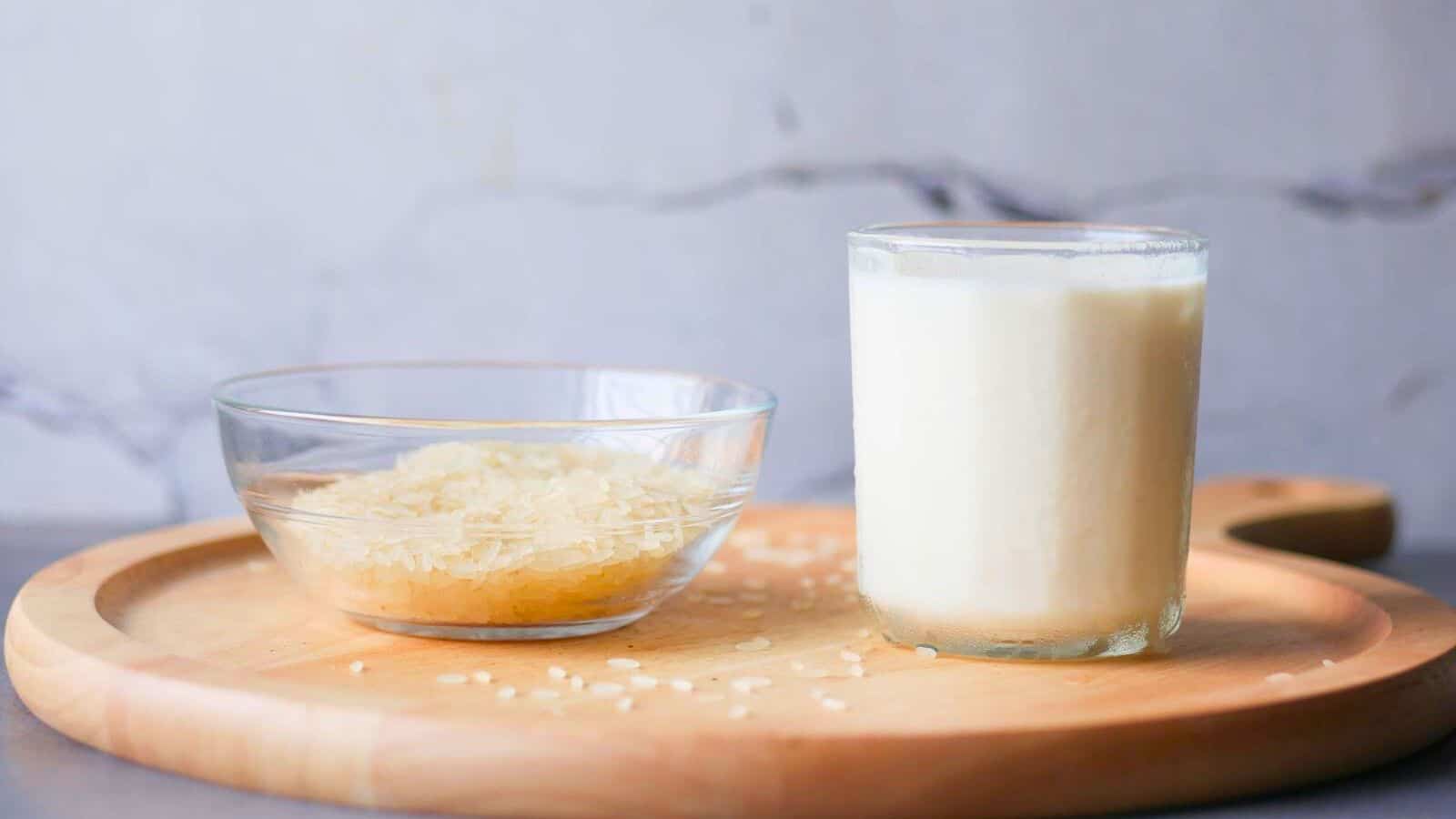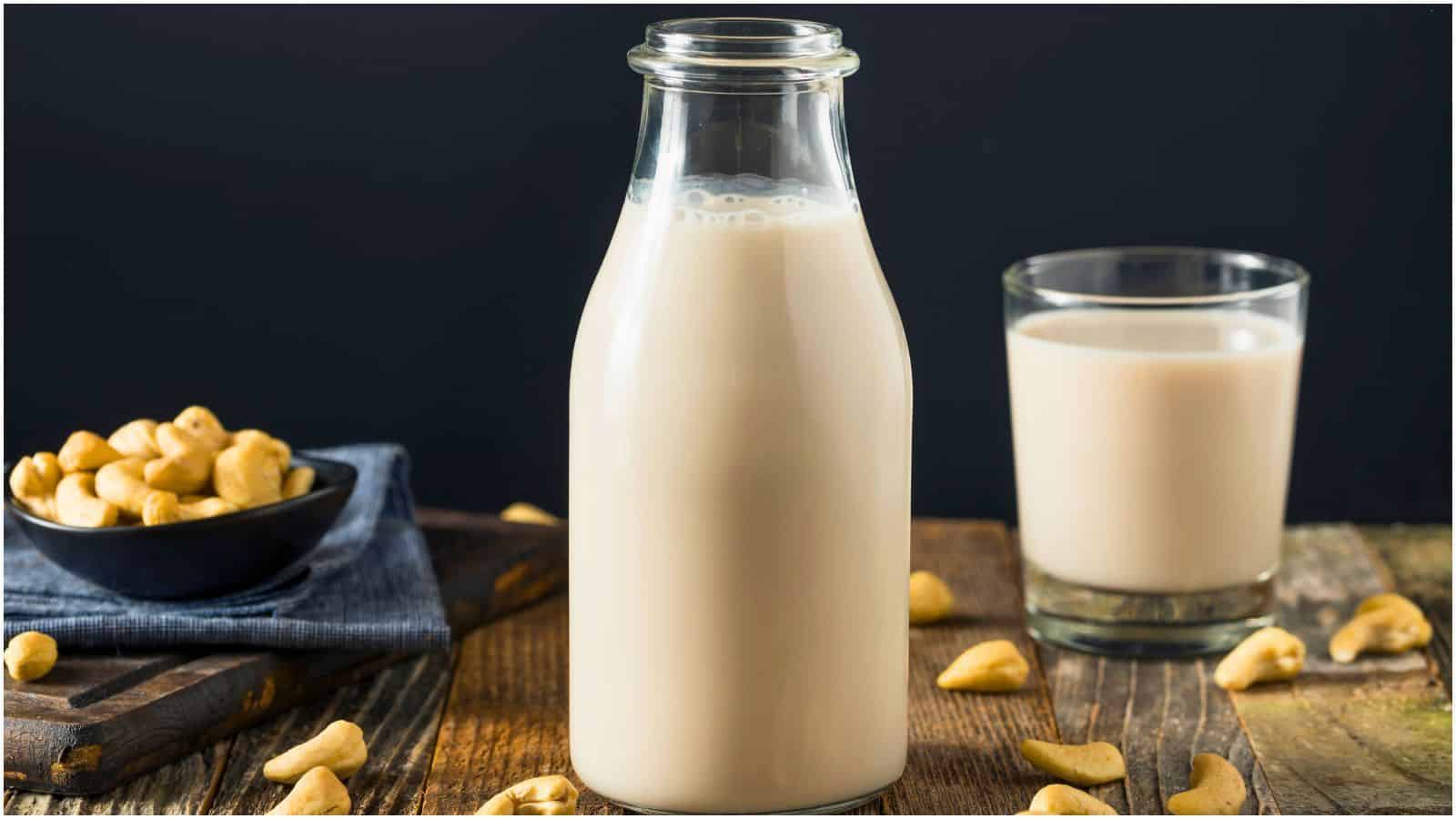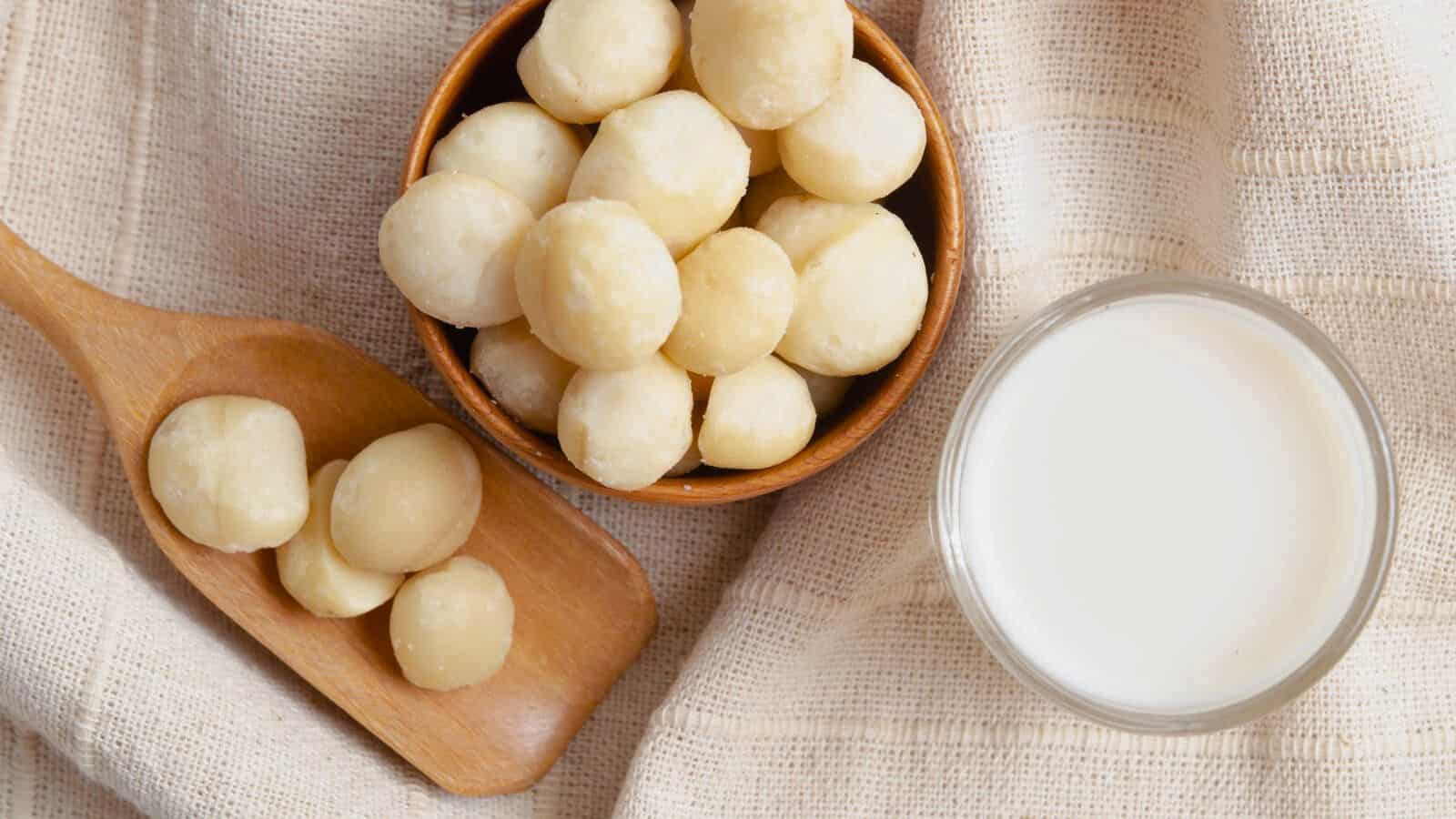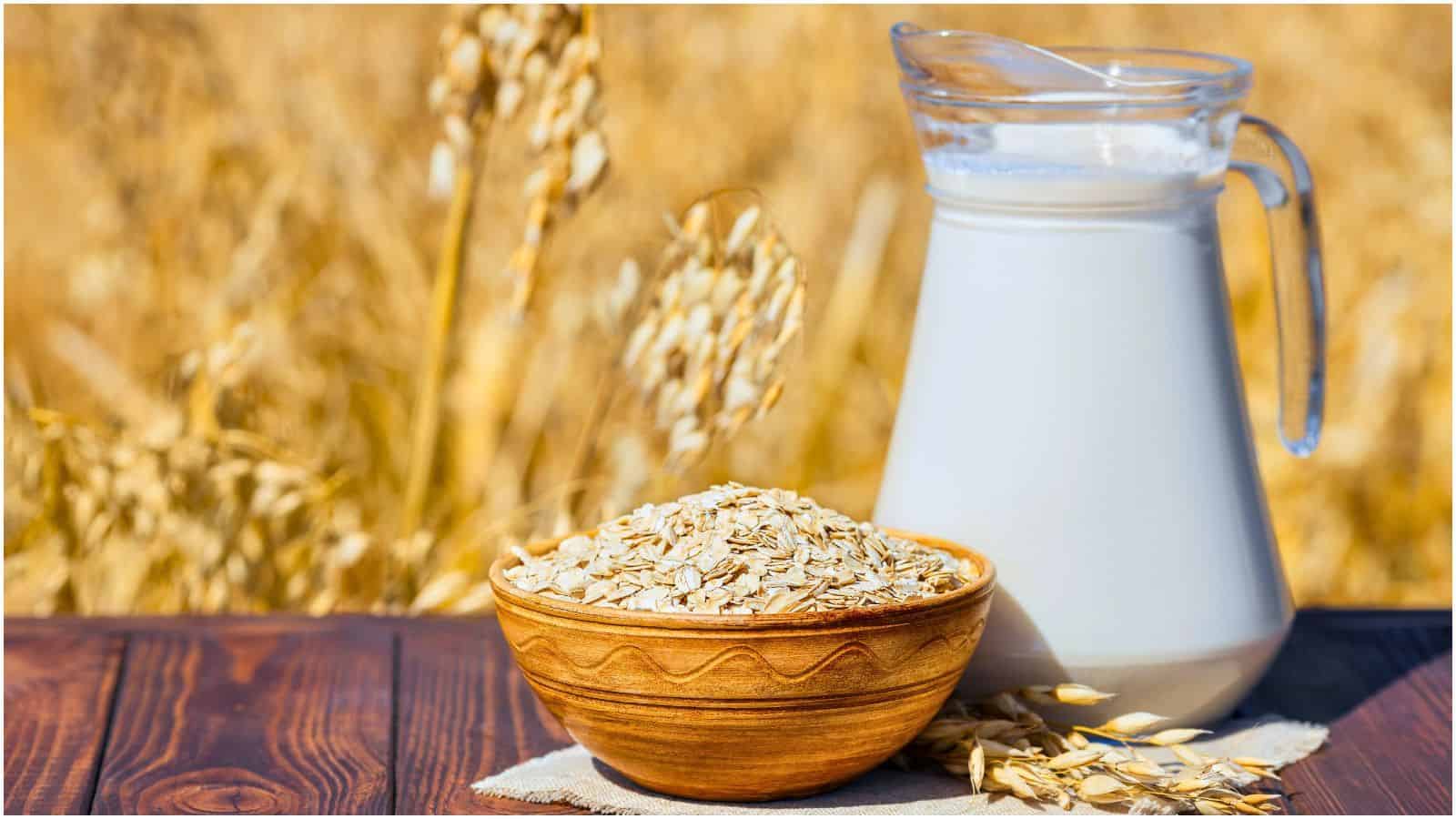Switching to plant-based milk has never been easier or more delicious. Whether you're lactose intolerant, vegan, or just looking to try something new, there are 11 amazing plant-based dairy milk substitutes you can drink. Each type of plant-based milk has its own distinct flavor and benefits, so there's something for everyone.
From nutty to creamy, these milk alternatives can be used in your morning coffee, cereal, baking, or straight from the glass. They're perfect for those avoiding dairy and are packed with nutrients. You'll find options made from nuts, seeds, grains, and legumes, each bringing something special to the table.
Start exploring the wide variety of plant-based milks – you might just find a new favorite that fits seamlessly into your daily routine. Ready to discover the perfect milk alternative for you? Let's get started and find the one that makes your taste buds happy!

Soy Milk

Soy milk is produced by soaking soybeans, grinding them with water, boiling the mixture, and filtering out the solids. Renowned for its high protein content, it closely resembles the texture and taste of cow's milk. This makes it a popular choice among vegans and vegetarians. Soy milk is often fortified with nutrients like calcium, vitamin D, and vitamin B12, enhancing its nutritional profile. Its creamy texture and rich taste make it great for cooking, baking, or enjoyed on its own.
Coconut Milk

Coconut milk is derived from the grated meat of mature coconuts. It has a rich, creamy consistency and a distinct tropical flavor. This milk alternative is a staple in many Asian and Caribbean cuisines. It is high in saturated fats, which give it its creamy texture. Coconut milk can be used in a variety of dishes, from soups and curries to desserts. It's also a popular choice for adding flavor and richness to smoothies, coffee, and even dairy-free ice creams and baked goods.
Hazelnut Milk

Hazelnut milk is produced by blending hazelnuts with water and straining the mixture. It has a rich, nutty flavor and a creamy consistency. This milk alternative is often enriched with nutrients like calcium and vitamin D. Hazelnut milk works well in both sweet and savory dishes, adding a distinct nutty taste. It’s a popular choice for coffee, smoothies, and baking, supplying a distinct flavor profile and a smooth texture that enhances the taste of both simple and complex recipes.
Pistachio Milk

Pistachio milk is made by blending pistachios with water and straining the mixture. It has a rich, creamy texture and a distinctive, slightly sweet flavor. This milk alternative is often fortified with essential vitamins and minerals, such as calcium and vitamin D. Pistachio milk can be used in various recipes, including smoothies, coffee, and desserts. Its unique flavor and creamy consistency make it a versatile and fun option for many, adding a nutty sweetness to a wide range of dishes.
Pea Milk

Pea milk is made from yellow peas and water, resulting in a milk alternative that's high in protein. It has a mild, neutral taste and a creamy texture. Pea milk is often fortified with vitamins and minerals, including calcium, vitamin D, and vitamin B12. Its high protein content makes it a good choice for those seeking to increase their protein intake. Pea milk is versatile and can be used in smoothies, cereal, coffee, and cooking, making it a nutritious and balanced option for various dietary needs.
Rice Milk

Rice milk is made by blending milled rice with water and straining the mixture. It has a naturally sweet taste and a thin consistency, making it a light alternative to dairy milk. Rice milk is often enriched with nutrients like calcium and vitamin D, contributing to a balanced diet. Being hypoallergenic, it is a safe option for individuals with multiple food allergies. Rice milk is best for smoothies, cereals, and baked goods, delivering a subtle sweetness and a light, refreshing texture.
Almond Milk

Almond milk is made by blending ground almonds with water and then straining the mixture. This milk alternative is celebrated for its light texture and mild, nutty flavor. It is naturally low in calories and frequently fortified with essential vitamins and minerals, including calcium and vitamin D. Almond milk is a versatile choice for those who are lactose intolerant or aiming to reduce their dairy consumption. It integrates seamlessly into smoothies, cereals, coffee, and various recipes, having a subtle yet pleasant taste.
Cashew Milk

Cashew milk is made by blending cashews with water and straining the mixture. It has a rich, creamy texture and a slightly sweet taste. Cashew milk is often enriched with vitamins and minerals, such as calcium and vitamin D. It’s a versatile milk substitute that works well in both sweet and savory dishes. Its creamy consistency makes it an excellent choice for coffee, smoothies, and cooking, adding a smooth texture and mild flavor that enhances without overpowering other ingredients.
Macadamia Milk

Macadamia milk is created by blending macadamia nuts with water and straining the mixture. It has a rich, smooth texture and a subtle, buttery flavor. This milk alternative is low in calories and carbohydrates, making it a popular choice for those following a low-carb diet. Macadamia milk is often fortified with nutrients like calcium and vitamin D. It works well in coffee, tea, and various recipes, adding a luxurious creaminess and mild nutty taste that complements both sweet and savory dishes.
Hemp Milk

Hemp milk is produced by blending hemp seeds with water. It has a nutty flavor and is rich in omega-3 and omega-6 fatty acids. This milk alternative is a good source of plant-based protein and essential nutrients like calcium and magnesium. Hemp milk's creamy consistency makes it an amazing substitute for dairy milk in coffee, smoothies, and baking. It’s also naturally free from common allergens, making it a great choice for those with dietary restrictions or anyone looking for a nutritious, plant-based milk.
Oat Milk

Oat milk is created by blending oats with water and straining the mixture to remove the solid parts. Its creamy texture and naturally sweet flavor make it a favorite for many, especially in coffee and tea due to its excellent frothing ability. Oat milk is often enriched with vitamins and minerals, such as calcium and vitamin D, boosting its nutritional value. It is an excellent option for those with nut allergies and fits well in various recipes, from baking to beverages.
Milking It, the Plant Way!

Choosing the right plant-based milk can transform your daily routine, adding variety and flavor to your favorite drinks and dishes. With so many great options available, you’re sure to find one that matches your taste and nutritional needs. From creamy and rich to light and refreshing, each type brings its own perks.
Plant-based milks are not just for those avoiding dairy; they’re a fantastic way to try something new and boost your nutrient intake. Whether you’re blending a smoothie, pouring it over cereal, or adding it to your coffee, there’s a plant-based milk that’s perfect for the job.
So, go ahead and try out different types. You might be surprised by how much you enjoy them. Embrace the change and find your new favorite. Here’s to making every sip satisfying and every dish a little more exciting — without the dairy!






Tell Me What You Think!